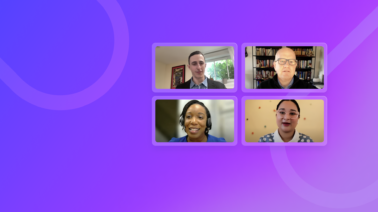 The idea for a national holiday honoring Dr. Martin Luther King, Jr. was first proposed in 1968. It eventually entered the US House of Representatives as a bill—endorsed by Jimmy Carter—in 1979. It failed.
The idea for a national holiday honoring Dr. Martin Luther King, Jr. was first proposed in 1968. It eventually entered the US House of Representatives as a bill—endorsed by Jimmy Carter—in 1979. It failed.
Through the efforts of activists like Stevie Wonder—who spearheaded a movement on behalf of the bill with his 1981 song “Happy Birthday”— as well as the unflagging support of union workers, and the signatures of passionate citizens across the country who signed petitions in its favor, the bill’s dream stayed alive. In 1983 (after first opposing it), Ronald Reagan signed the bill into law.
Why did Stevie Wonder feel so strongly in 1981 that it was finally time to recognize Dr. King in this way? It’s worth noting his reasons—he felt there to be a “disturbing drift in the country towards war, bigotry, poverty and hatred.”
We are educators at Udacity, and as such, Dr. King’s wisdom has a special resonance for us:
The function of education is to teach one to think intensively and to think critically. Intelligence plus character–that is the goal of true education.
The complete education gives one not only power of concentration, but worthy objectives upon which to concentrate.
Education without morals is like a ship without a compass, merely wandering nowhere.
On November 2, 1983, President Ronald Reagan affixed his signature to the bill that made Martin Luther King, Jr. Day a national holiday. On that occasion, he said of Dr. King:
He was in constant pursuit of truth, and when he discovered it, he embraced it.
1983 was also the year “A Nation at Risk: The Imperative for Educational Reform” was published by Ronald Reagan’s National Commission on Excellence in Education. The report delivered a devastating critique of education in the United States, and while the report’s validity has been debated and disputed frequently in the years since, its overall impact remains very significant for the focus it put on the need for reform.
Remember, as you read these excerpts below, that these words were written not ten years ago, not twenty years ago, but more than thirty years ago:
Knowledge, learning, information, and skilled intelligence are the new raw materials of international commerce …
We must dedicate ourselves to the reform of our educational system for the benefit of all–old and young alike, affluent and poor, majority and minority …
Learning is the indispensable investment required for success in the “information age” we are entering …
Individuals in our society who do not possess the levels of skill, literacy, and training essential to this new era will be effectively disenfranchised …
A high level of shared education is essential to a free, democratic society …
When Dr. King accepted the Nobel Peace Prize in 1964, he spoke of his dreams for the future, acknowledging their necessary audacity, and in so doing, shone a light on the critical importance of education to our lives:
I have the audacity to believe that peoples everywhere can have three meals a day for their bodies, education and culture for their minds, and dignity, equality, and freedom for their spirits.
We celebrate this holiday today as human beings. We honor the man who spoke these words, and we renew again our devotion to these ideals. We know—as Dr. King knew—that education uplifts and empowers us. We know it is through education that we put food on our tables, and find freedom for our spirits.
On this day, let us go forward on the principle that all people of the world having food for their bodies, education for their minds, and freedom for their spirits is NOT an audacious dream to hope for. Let us go forward believing it is natural, and right, that people all over the world should have these things.
For truly, should it be a risk to dream of a world like this?



